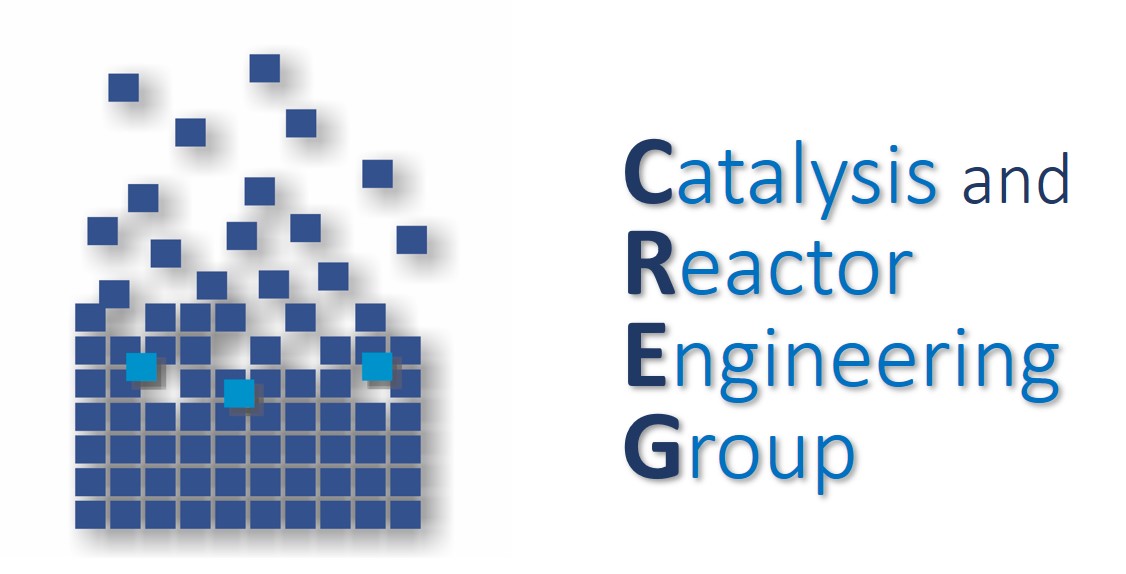
Teléfono: +34 876 555 481
Email: jsoler@unizar.es
Dirección: c/Mariano Esquillor SN Edificio I+D+i, I3A, 50018, Zaragoza (Spain)
Sideral: Ver el perfil (CV)
SOBRE MÍ
Mis inicios en el campo de la investigación se produjeron en octubre de 1995 tras obtener el título de Licenciatura en Química (junio de 1995). Me incorporé al Departamento de Ingeniería Química y Tecnologías del Medio Ambiente para realizar una Tesina y, posteriormente, el Doctorado (1995-2000). La línea de investigación consistió en el desarrollo de un nuevo reactor redox de lecho fluidizado con dos zonas, una oxidante y otra reductora, que permitiría obtener mejoras de rendimiento en procesos de deshidrogenación oxidativa. Los resultados fueron muy prometedores, especialmente en la obtención de butadieno a partir de n-butano, donde el rendimiento se triplicó en comparación con los reactores convencionales de lecho fijo y fluidizado.
Tras obtener el título de doctor, me incorporé al grupo de investigación en pilas de combustible del departamento de combustibles fósiles del CIEMAT en Madrid para colaborar en el desarrollo del tema de investigación: catálisis heterogénea en pilas de combustible: "desarrollo de nuevos electrocatalizadores, mejoras en el procesamiento de combustibles" (2000 -2003). Esto me permitió familiarizarme con la preparación de materiales para pilas de combustible tanto de baja (celdas poliméricas) como de alta temperatura (carbonatos fundidos). También trabajé en proyectos de integración de sistemas que utilizaban tecnología de celdas de combustible para generación de electricidad.
Durante 6 meses (2003-2004) trabajé como investigador doctoral obteniendo un contrato del programa Torres Quevedo en transferencia de tecnología e investigación para la fabricación de componentes de pilas de combustible en David Fuel Cell Components SL, uno de los primeros proyectos privados en España. en esta tecnología.
Tras la obtención de un contrato permanente Ramón y Cajal (2005-2010), me incorporé al Instituto Universitario de Investigaciones en Nanotecnología de Aragón (INA) y al grupo de Ingeniería y Catálisis de Reactores (CREG) de la Universidad de Zaragoza, donde lideré y realicé tareas de la preparación y caracterización de nuevos materiales con alta conductividad iónica para su uso en membranas de pilas de combustible con membranas de intercambio de protones capaces de operar a altas temperaturas. Como hito relevante se logró la financiación de un proyecto europeo. En 2008 obtuve una beca del programa José Castillejo para una estancia de investigación de cuatro meses en la Universidad de Newcastle upon Tyne para desarrollar nuevas membranas y electrocatalizadores para pilas de combustible de membranas de intercambio de protones de alta temperatura.
En 2010 me incorporo al Instituto Universitario de Investigaciones en Ingeniería (I3A) de Aragón donde trabajo en el desarrollo de nuevas rutas de obtención de productos químicos de mayor valor añadido mediante la preparación de catalizadores y/o nuevos reactores catalíticos. En el año 2014 fui seleccionado por SENESCYT (Ecuador) para realizar el proyecto “Desarrollo de catalizadores para la producción de hidrógeno a partir de biomasa de residuos de la planta de banano mediante gasificación catalítica en agua a temperatura supercrítica” en la Universidad de Cuenca, Ecuador durante 4 meses entre 2014 y 2016.
De los trabajos realizados, he presentado más de ciento cuarenta trabajos en congresos y he publicado 48 artículos indexados (índice h = 24). Soy coautor de un libro, 3 capítulos de libro y 4 patentes internacionales. He dirigido 9 Tesis Doctorales, 9 Trabajos Fin de Carrera, 23 Trabajos Fin de Grado, 4 Trabajos Fin de Máster y he tutorizado a dos estudiantes en el programa Erasmus y prácticas en empresas, respectivamente. He participado en 42 proyectos de investigación: 5 autonómicos, 24 nacionales, 12 europeos y 1 de la Universidad de Zaragoza. Soy miembro del Grupo Español de Zeolitas desde 2005 y de la Red HIDRÓGENO: “PRODUCCIÓN Y USOS EN EL TRANSPORTE Y EL SECTOR ELÉCTRICO” (H2TRANSEL) de CYTED desde 2020.
Orcid: https://orcid.org/0000-0001-9022-2835
Scopus: https://www.scopus.com/authid/detail.uri?authorId=57208335764
PUBLICACIONES
2026
González-Pizarro, R.; Calero-Berrocal, R.; Lasobras, J.; Renda, S.; Rodríguez-Pardo, M. R.; Soler, J.; Menéndez, M.; Herguido, J.
Tuning e-fuel selectivity in sorption-enhanced CO2 hydrogenation over In2O3/ZrO2: The effect of LTA and FAU zeolites Artículo de revista
En: Fuel, vol. 406, pp. 136974, 2026, ISSN: 0016-2361.
@article{GONZALEZPIZARRO2026136974,
title = {Tuning e-fuel selectivity in sorption-enhanced CO2 hydrogenation over In2O3/ZrO2: The effect of LTA and FAU zeolites},
author = {R. González-Pizarro and R. Calero-Berrocal and J. Lasobras and S. Renda and M. R. Rodríguez-Pardo and J. Soler and M. Menéndez and J. Herguido},
url = {https://www.sciencedirect.com/science/article/pii/S0016236125026997},
doi = {https://doi.org/10.1016/j.fuel.2025.136974},
issn = {0016-2361},
year = {2026},
date = {2026-01-01},
journal = {Fuel},
volume = {406},
pages = {136974},
abstract = {The e-fuels synthesis via CO2 hydrogenation and the Sorption Enhanced Reaction technology are captivating strategies for CO2 utilization and the integration of renewable energy sources. This study focuses on enhancing the conversion of CO2 over an In2O3/ZrO2 catalyst by incorporating LTA zeolites (3A and 4A) and a FAU zeolite (13X). Key operational parameters, such as temperature (T), Gas Hour Space Velocity (GHSV), type of zeolite, and Zeolite: Catalyst mass ratio (Z/C), were systematically varied. LTA zeolites (3A and 4A) provided the highest CO2 conversions. The introduction of a water-adsorbing solid into the reactor significantly altered the products yield and selectivity. While the selectivity towards CH4, CH3OH, and C2H6O appeared to lay on the type of zeolite, the selectivity towards CO remained unaffected. Zeolite 3A demonstrated the greatest enhancement in selectivity towards CH4 and CH3OH, whereas the synthesis of C2H6O was favored by zeolites 4A and 13X. The Zeolite:Catalyst mass ratio also played a crucial role in process performance, influencing both CO2 conversion and product selectivity. Increasing this ratio improved CO2 conversion and reduced CO selectivity under all operating conditions, while CH4 selectivity increased. However, the selectivity toward CH3OH and C2H6O exhibited an anomalous and complementary behavior. While a maximum was observed for DME, a minimum was registered in methanol production, suggesting a dependency of the dehydration reaction kinetics on the amount of water produced during the reaction.},
keywords = {},
pubstate = {published},
tppubtype = {article}
}
González-Pizarro, R.; Renda, S.; Lasobras, J.; Soler, J.; Menéndez, M.; Herguido, J.
Low loading copper-based catalysts for effective CO2 hydrogenation to methanol Artículo de revista
En: Fuel, vol. 408, pp. 137642, 2026, ISSN: 0016-2361.
@article{GONZALEZPIZARRO2026137642,
title = {Low loading copper-based catalysts for effective CO2 hydrogenation to methanol},
author = {R. González-Pizarro and S. Renda and J. Lasobras and J. Soler and M. Menéndez and J. Herguido},
url = {https://www.sciencedirect.com/science/article/pii/S001623612503368X},
doi = {https://doi.org/10.1016/j.fuel.2025.137642},
issn = {0016-2361},
year = {2026},
date = {2026-01-01},
journal = {Fuel},
volume = {408},
pages = {137642},
abstract = {Methanol synthesis via CO2 hydrogenation is an emerging Power-to-Liquid (PtL) technology aimed to accelerate the energy transition and the defossilization of key sectors, particularly maritime transport. This study focuses on the study of low loading formulations, to minimize the catalyst cost. Key operational variables including temperature (T), Weight Hourly Space Velocity (WHSV), copper and zinc loadings, and aging state were systematically varied. An overall active phase loading of 10 %wt emerged as optimal. Within this total loading, a 5 %wtCu-5 %wtZn/ZrO2 catalysts delivered higher methanol productivity than 10 %wtCu/ZrO2; however, the bimetallic catalysts showed pronounced deactivation under water-rich atmospheres, establishing 10 %wtCu/ZrO2 as the most promising catalysts. Operating temperature and WHSV exerted a strong, synergistic influence on CH3OH formation; in particular, increasing WHSV shifted the reaction away from thermodynamic control and boosted methanol synthesis. Finally, the catalytic performance of these low-loading catalysts was benchmarked against high-copper-loading methanol catalysts reported in the literature by critically compare their activities as a function of the residence time (τ) calculated at reaction conditions. This assessment revealed that the proposed formulation is highly competitive when compared to most conventional formulation, with a maximum methanol space time yield (STYCH3OH) of 3.9 gCH3OH gCu-1 h-1. This comparison confirms that the catalysts proposed in this study could offer a remarkably more efficient use of the active phase than the conventional high-copper-loading catalysts.},
keywords = {},
pubstate = {published},
tppubtype = {article}
}
Renda, Simona; Soler, Jaime; Menéndez, Miguel; Herguido, Javier
Doped In2O3/ZrO2 catalysts to drive selectivity toward DME in one-pot CO2 hydrogenation Artículo de revista
En: Applied Catalysis A: General, vol. 710, pp. 120682, 2026, ISSN: 0926-860X.
@article{RENDA2026120682,
title = {Doped In2O3/ZrO2 catalysts to drive selectivity toward DME in one-pot CO2 hydrogenation},
author = {Simona Renda and Jaime Soler and Miguel Menéndez and Javier Herguido},
url = {https://www.sciencedirect.com/science/article/pii/S0926860X25005848},
doi = {https://doi.org/10.1016/j.apcata.2025.120682},
issn = {0926-860X},
year = {2026},
date = {2026-01-01},
journal = {Applied Catalysis A: General},
volume = {710},
pages = {120682},
abstract = {This study investigates single-pass dimethyl ether synthesis at mild pressure conditions using novel bifunctional catalysts based on indium-modified formulations and incorporating Ni, Cu, Pt, and Pd as active metals. Additionally, the substitution of the conventional HZSM-5 zeolite with 4A zeolite as the dehydration component was evaluated. Although 4A zeolite exhibited lower dehydration activity, it contributed to an overall improvement in DME selectivity. The incorporation of secondary metals into the In2O3-ZrO2 formulation reduced catalytic activity but enhanced selectivity, ultimately increasing DME yield. The formation of by-products such as light olefins and methane was significantly dependent on the metal used: Ni, Pt, and Pd reduced olefin production, though Ni promoted excessive methane formation across the whole temperature range. Notably, the Pt-based catalyst completely suppressed by-product formation across the temperature range studied. While the In2O3-ZrO2-based catalysts generally displayed lower space–time yields than the commercial reference, they achieved comparable performance at 280 °C. Due to their superior selectivity, these formulations are promising for developing even better performing catalysts, to be excellent candidates in industrial processes, where the operation with recycle loops requires a high product purity.},
keywords = {},
pubstate = {published},
tppubtype = {article}
}
2025
González Pizarro, Rodrigo; Lasobras Laguna, Javier; Renda, Simona; Soler Herrero, Jaime; Menéndez, Miguel; Herguido, Javier
Intensificación del proceso para la producción de gas de síntesis via (LT-rWGS): un reactor de lecho fluidizado con alimentación continua de sorbente (CSF) Actas de congresos
vol. 13, 2025.
@proceedings{GonzálezPizarro_LasobrasLaguna_Renda_SolerHerrero_Menéndez_Herguido_2025,
title = {Intensificación del proceso para la producción de gas de síntesis via (LT-rWGS): un reactor de lecho fluidizado con alimentación continua de sorbente (CSF)},
author = {González Pizarro, Rodrigo and Lasobras Laguna, Javier and Renda, Simona and Soler Herrero, Jaime and Menéndez, Miguel and Herguido, Javier},
url = {https://papiro.unizar.es/ojs/index.php/jji3a/article/view/11917},
doi = {10.26754/jji-i3a.202511917},
year = {2025},
date = {2025-07-01},
urldate = {2025-07-01},
journal = {Jornada de Jóvenes Investigadores del I3A},
volume = {13},
keywords = {},
pubstate = {published},
tppubtype = {proceedings}
}
González-Pizarro, R.; Lasobras, J.; Soler, J.; Herguido, J.; Menéndez, M.
Proof of concept for a sorption-enhanced reactor with continuous sorbent feeding (CSF): application to green methanol production Artículo de revista
En: Chemical Engineering Journal, vol. 517, pp. 164562, 2025, ISSN: 1385-8947.
@article{GONZALEZPIZARRO2025164562,
title = {Proof of concept for a sorption-enhanced reactor with continuous sorbent feeding (CSF): application to green methanol production},
author = {R. González-Pizarro and J. Lasobras and J. Soler and J. Herguido and M. Menéndez},
url = {https://www.sciencedirect.com/science/article/pii/S1385894725053987},
doi = {https://doi.org/10.1016/j.cej.2025.164562},
issn = {1385-8947},
year = {2025},
date = {2025-01-01},
journal = {Chemical Engineering Journal},
volume = {517},
pages = {164562},
abstract = {A new reactor for process intensification using sorption enhanced reaction is described. The novelty compared with most experimental work is that a continuous sorbent feeding (CSF) provides a steady state operation. The sorbent increases the reaction rate of a reversible reaction. The reactor is based on the phenomena of segregation of solids in fluidized bed reactors by using a catalyst and a sorbent. Under certain conditions of density and particle size, the two solids segregate and the sorbent may be removed from the bed with only a small content of catalyst. The system has been experimentally tested in the hydrogenation of CO2 to methanol, using a zeolite as sorbent. A significant increase in CO2 conversion was achieved compared with the same reactor without sorbent.},
keywords = {},
pubstate = {published},
tppubtype = {article}
}

